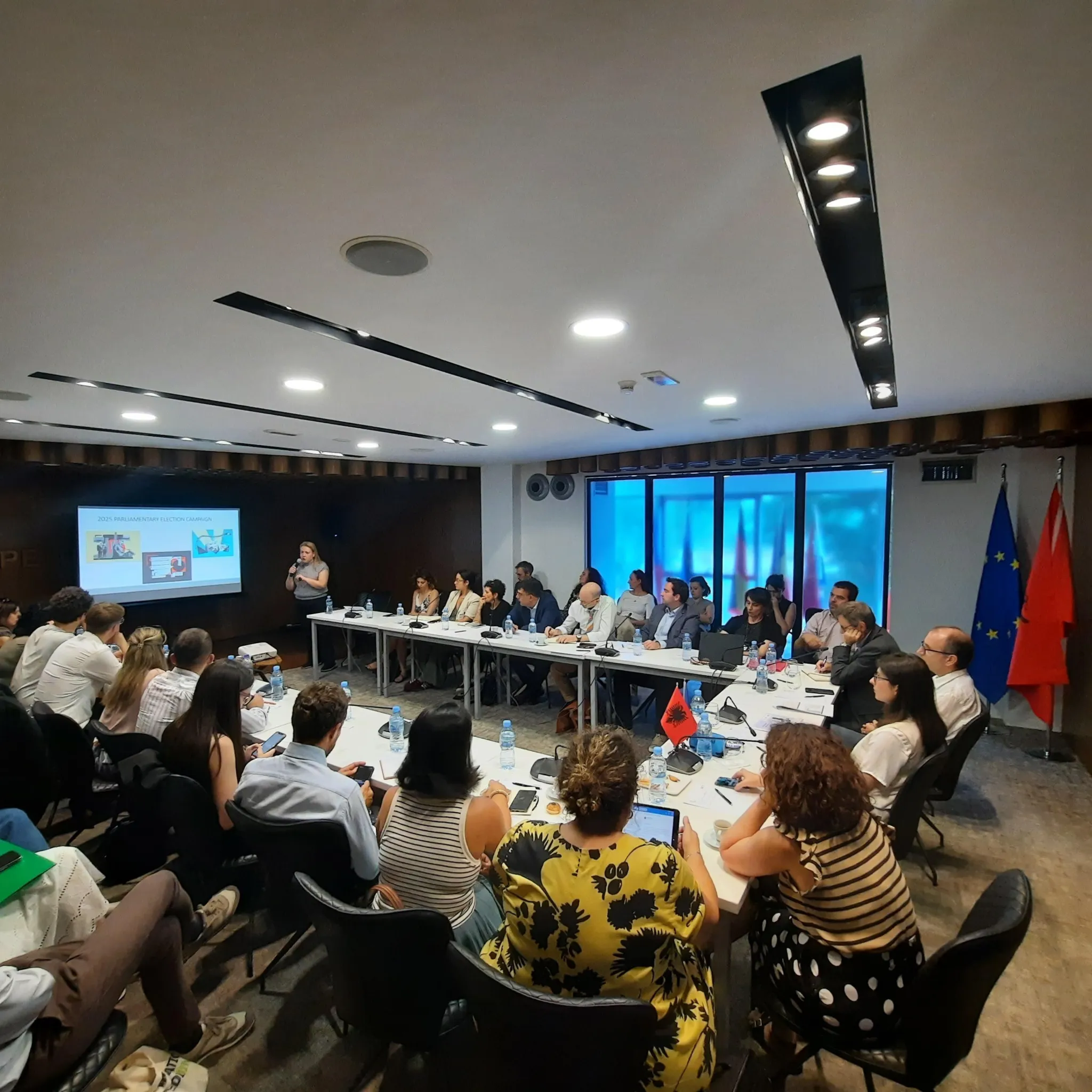Monitoring Code of Conduct on digital campaigns in Albania

On 19 June, International IDEA and the Rule of Law Center at the University of Helsinki, in cooperation with the Balkan Investigative Reporting Network (BIRN) Albania, presented the results of a comprehensive social media electoral campaign monitoring initiative in Tirana.
The monitoring report focused on commitments stemming from a Code of Conduct on Digital Campaigns, which Albanian political parties signed before the 11 May parliamentary elections. The event marked a key moment in the ongoing effort to strengthen political finance transparency and foster a safer, more ethical digital campaigning environment. The initiative is part of the broader project Integrity and Trust in Albanian Elections: Fostering Political Finance Transparency and the Safe Use of Information and Communication Technologies – Phase II
At the heart of the monitoring was the Code of Conduct on Digital Campaigns—a voluntary agreement signed in March 2025 by Albania’s main political parties. Developed through a multi-stakeholder process, by the National Democratic Institute and International IDEA and Rule of Law Centre of Finland, in cooperation with the Central Election Commission, the Code set standards for ethical use of technology, transparency in online political advertising, civil discourse, data protection, and the fight against disinformation and hate speech.
Between 25 April and 10 May BIRN Albania relied on a multi-layered methodology combining social media analytics, transparency tools from Meta and Google, and manual content reviews. Their investigation spanned platforms like Facebook, Instagram, and YouTube, and included political content ranging from traditional social media posts to mass email campaigns and AI-generated videos.
The findings show that platforms like Facebook and Instagram remained central to the parties’ political communication during the electoral campaign. Despite the Code's adoption, adherence was inconsistent. BIRN Albania recorded 349 breaches of the Code of Conduct during the campaign period. Most infractions involved, lack of transparency in political advertising, unethical use of AI-generated content, including deepfakes, and instances of cyberbullying.
A particularly worrying trend was the rise of third-party pages—58 were identified—that promoted or attacked candidates using manipulated content, diaspora-targeted messaging, and bot-driven engagement. These pages often operated without clear disclosure of their origins or funding, raising red flags around coordinated disinformation.
The report also highlighted violations of Albania’s electoral silence laws. Political actors continued to run paid ads on Election Day, contravening national electoral regulations designed to give voters space to make informed decisions free from last-minute influence.
Participants at the Tirana event engaged in open discussions about next steps. Key recommendations focused on: boosting ad transparency, establishing clearer AI regulations, and enhancing monitoring capacity for oversight institutions and civil society groups.
International IDEA will continue to engage with partners and stakeholders to promote ethical digital campaigning and support evidence-based policy discussions. The insights gathered through this initiative may serve as a blueprint for future policy reforms.
Note: The full data and final report will be published in the coming weeks. For more information on the findings while the publication is pending, please contact m.gjoncaj@idea.int.





